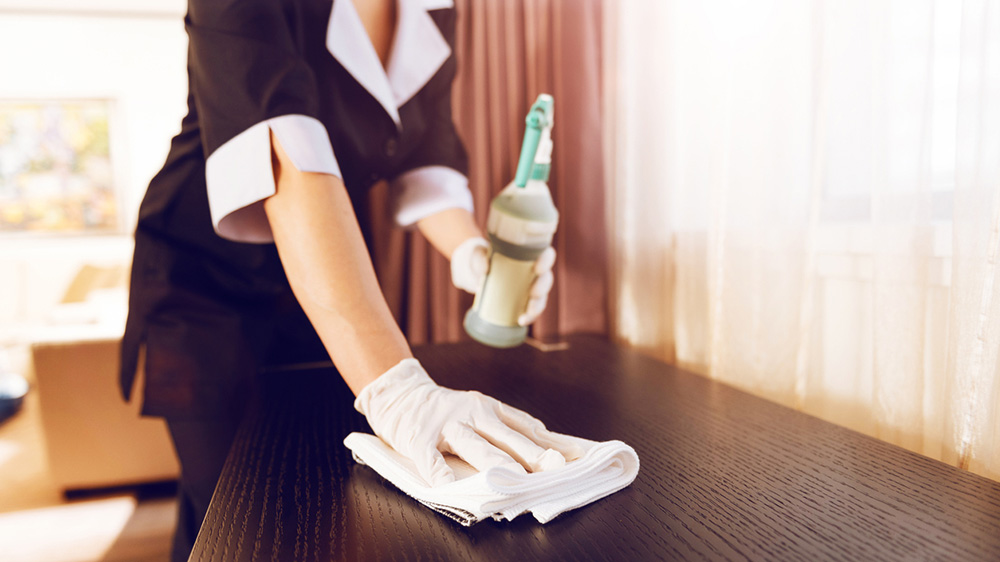For hotels, the duty of care, which is the legal obligation to ensure the safety or well-being of their guests, has always been a critical component of their operations. The corona virus pandemic has forced many hotels to close, and many hoteliers are already concerned about how they will be required to comply with the Duty of Care once they reopen once the crisis has passed. As a result of the pandemic, not only will government standards dictate new requirements for businesses, but the public’s expectations for health and safety will also be significantly different than they were previously.
Listed below are some of the most important things to keep in mind when updating your Duty of Care policies to comply with new public health guidelines, to make your hotel’s reopening as smooth as possible. In this article (continue reading or click on a section to skip to that section):
Room amenities are being re-examined.
Consider rearranging your room amenities so that they are more “low-touch” rather than “high-touch,” especially if they are difficult to clean or replace after every visitor. Items such as pens, notepads, and magazines, for example, are frequently used and left behind by guests but are not always replaced by the housekeeping staff.
Items such as robes and slippers that appear to be in good condition should still be replaced. Consider providing amenities on-demand to guests, or having guests select the amenities they want before check-in, to make processes easier for housekeeping and to ensure that the amenities are delivered to the room fresh and sanitized. Consider including amenities such as hand sanitizer and face masks as part of your service offerings, as well.
Distancing oneself from others and maintaining one’s hygiene
Because there is currently no available vaccine for this strain of corona virus, public health measures such as social distancing will likely become the standard practice around the world until a vaccine is made available. Hotels may be required to adhere to specific public health regulations depending on the country and local government in which they are located. Consider including the following measures in your overall strategy:
• Install hand sanitizer dispensers throughout the hotel, with a concentration in high-traffic areas such as the restaurant and meeting rooms.
• Establish social distance markers in your public areas to keep check-in lines and general crowding under control. •
• Arrange your restaurant, lobby, and lounge seating so that guests are seated with adequate space between them.
• Whenever possible, avoid face-to-face interactions between staff and guests. By promoting contactless and keyless check-in through the use of mobile applications, you can save time and money. Allowing guests to opt out of daily housekeeping is a good idea if they don’t want staff coming into their room regularly. For room service requests, offer guests the option of contactless delivery, in which items are left outside the door instead of being brought in by staff.
The consumption of food and beverages
The fact that food or food packaging is not a known source of COVID-19 infection does not negate the need for hotels with food and beverage programs to take additional precautions with their dining service to reduce the risk to guests. Some considerations are as follows:
• Revisit any buffet-style services in which guests are permitted to help themselves. Breakfast, as well as any complimentary happy hours or lounge/club access with open snacks, is all included. Consider serving pre-packaged “grab-and-go” meals for breakfast, or ask guests to place an order the night before to have it delivered hot to their room the next morning. When serving self-serve snacks, provide them individually wrapped or instruct guests to use disposable gloves when doing so.
Swimming pools, spas, and fitness centers are available.
Even if hotels take extra precautions to maintain social distancing and extremely rigorous hygiene standards across all areas, pools, fitness centers and spa Malta can still be considered safe places to spend time. Some considerations are as follows:
Pool and hot tub owners should conduct regular tests to ensure that the water meets all safety requirements and contains acceptable chlorine levels. Water that has been properly treated should be able to provide adequate disinfection to neutralize the virus.
• In fitness centers, disinfect all of the equipment regularly with a disinfecting solution containing at least 70% rubbing alcohol. Particular attention should be paid to high-touch areas, such as weight equipment, treadmill interfaces and handrails, yoga mats, and exercise balls, among other things.
• Keep the areas around the pool and fitness center clean regularly, including the changing rooms, showers, and restrooms? These are the areas where transmission is most likely to spread.

